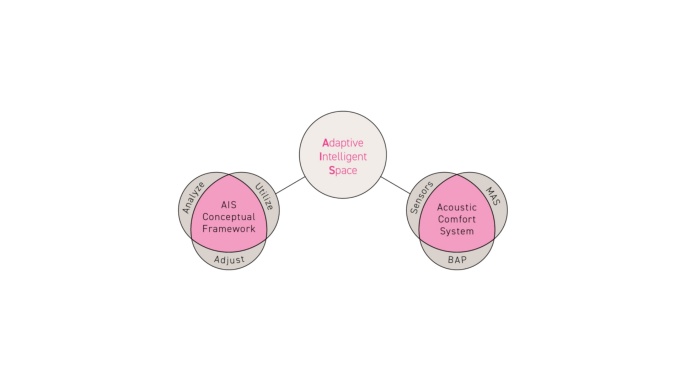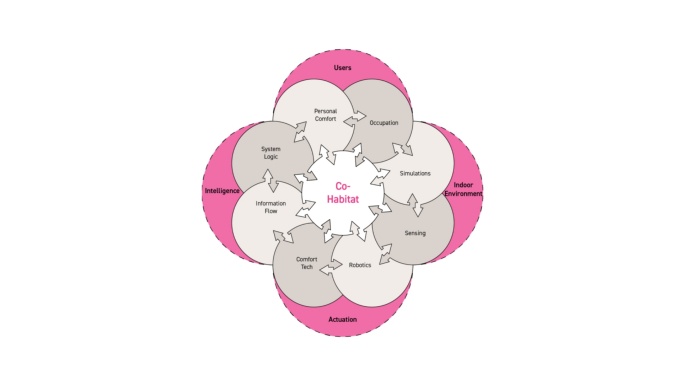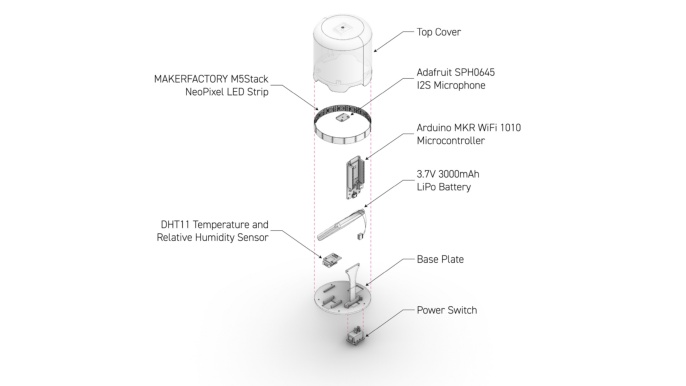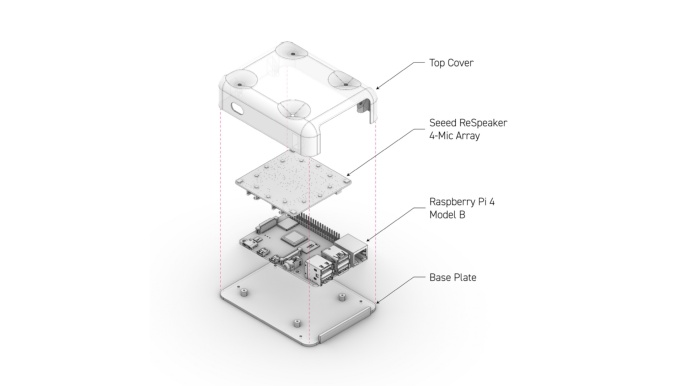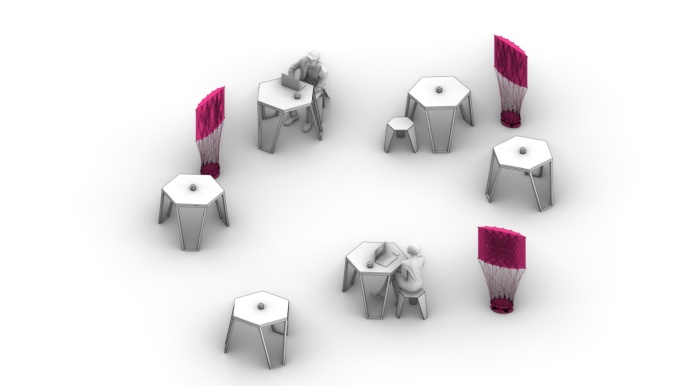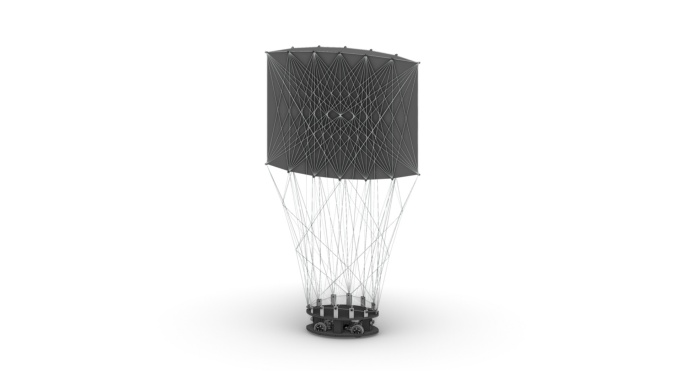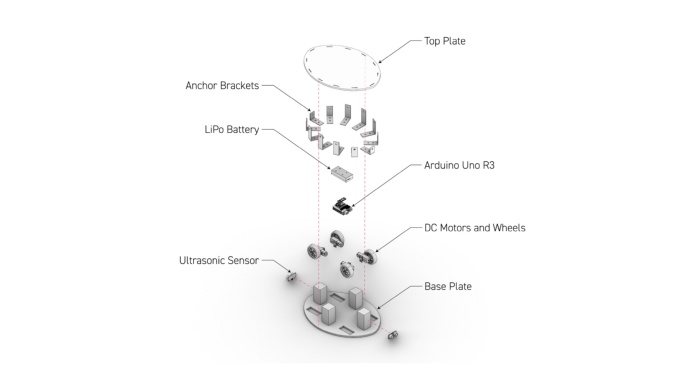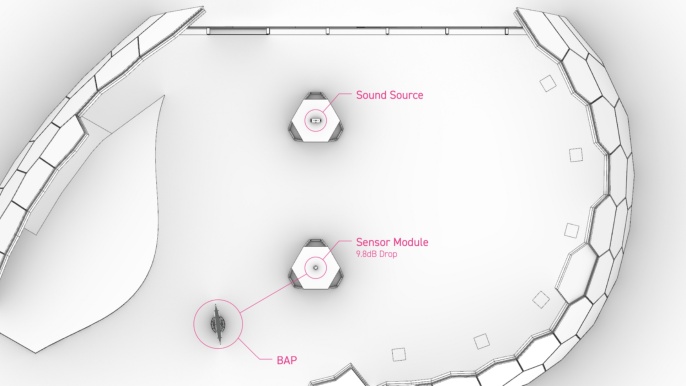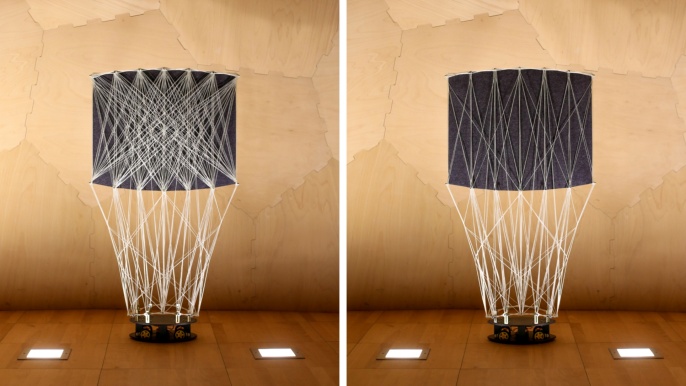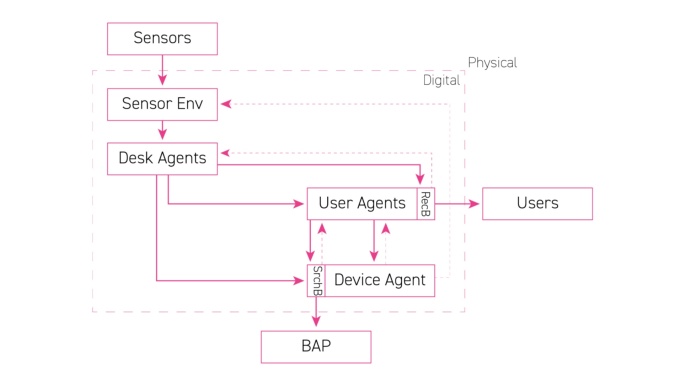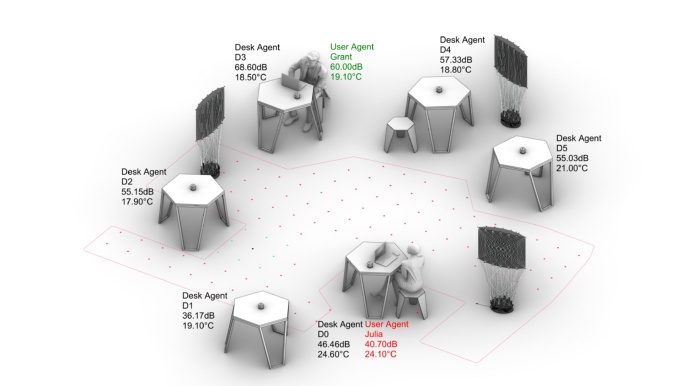
This project aims to create Adaptive Intelligent Spaces (AIS), which are spaces that increase personal comfort in open-plan work spaces by making them both more intelligent and more locally adaptive with regard to indoor conditions. Seeing that a large amount of office occupants is dissatisfied with one or more indoor condition comfort aspects, and large amounts of energy are wasted to condition indoor spaces, this project is crucial for worker’s health, productivity, and well-being, as well as sustainability reasons. Computational design methods and strategies were used to develop a conceptual framework and a technical application of it with regard to acoustic comfort in a demonstrator system called Acoustic Comfort System (ACS).
The framework’s main principles are
1) Analyze indoor conditions,
2) Utilize present conditions,
3) Adjust conditions adaptively,
with a “utilization first” approach where matching comfort preferences to existing conditions (utilization) is always evaluated before adjustments to the conditions through adaptive and mainly local actuation are considered.
The ACS’s objective to increase personal acoustic comfort by applying the AIS framework is achieved through a wireless, secure, end-to-end encrypted IoT sensor network (Analyze), a multi-agent system (control and simulation unit including Utilize) based on the ICD.AbmFramework, and an autonomously moving, lightweight, behavioral acoustic panel (BAP; Adjust). The success of these methods was confirmed through several experiments at the Landesgartenschau 2014 segmented timber shell in Schwäbisch Gmünd, now the Dieter-Paul-Pavillon. Overall, this project shows that a more sustainable, healthier, more productive, and more comfortable life in buildings is possible through a smart, sustainable comfort and conditioning strategy.
ITECH M.Sc. Thesis Project 2021: Adaptive Intelligent Space - the Analyze-Utilize-Adjust framework for personal comfort and its application to acoustic comfort using IoT, emergent and agent-based approaches
Grant Galloway, Lorin Samija, Max Zorn
Thesis Advisers: Katja Rinderspacher, Dylan Wood
Thesis Supervisor: Prof. Achim Menges
Second Supervisor: Prof. Jan Knippers
with support of: Christian Frenzel (Transsolar)


